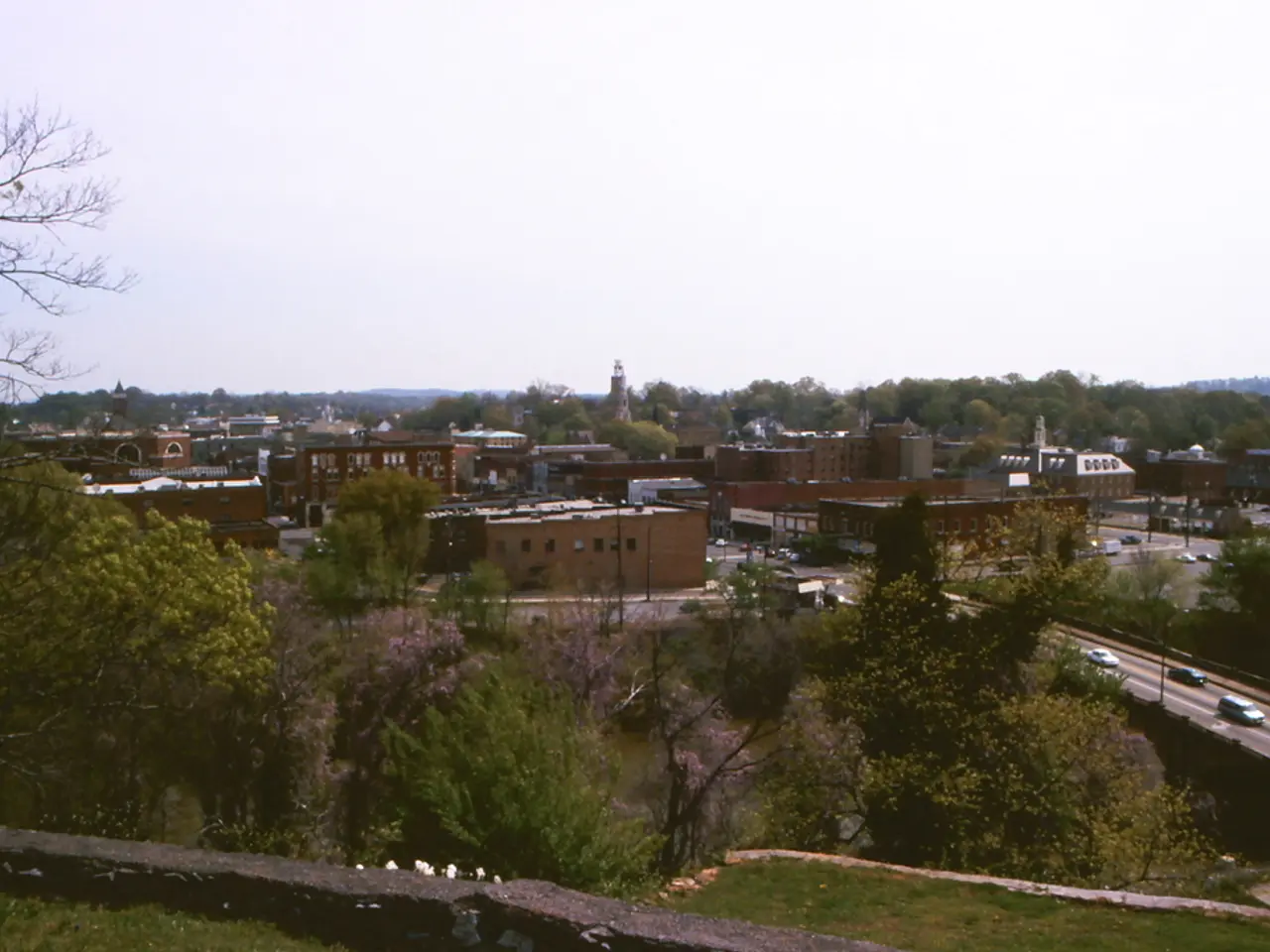Funds amounting to 238 crores allocated from the Environment Protection and Clean Air initiatives have been distributed to metropolitan cities in the National Capital Region for the implementation of clean-air action plans.
In a bid to combat the persistent air pollution crisis in the National Capital Region (NCR), the Central Pollution Control Board (CPCB) has disbursed over Rs 238 crore to nine urban local bodies (ULBs) in the region [2][3]. These funds, earmarked for initiatives across 19 NCR cities according to CPCB guidelines, serve as gap-funding support to bridge financial shortfalls in urban pollution control efforts.
The allocation of these funds is noteworthy, with key initiatives focusing on tangible air pollution mitigation measures. For instance, funds have been allocated for the procurement of Mechanical Road-Sweeping Machines (MRSMs) to keep roads clean and reduce dust—a major contributor to air pollution in the NCR [2]. Similarly, Anti-Smog Guns (ASGs) have been procured to directly address air quality during peak pollution periods [2]. Additionally, investments have been made in upgrading and repairing roads and pavements, which can help reduce dust emissions and improve urban livability [2].
Another significant area of focus is incentivizing alternatives to stubble burning, a seasonal pollution source in the NCR region [2]. The CPCB is also considering proposals to fund scientific studies related to air quality assessment, pollution modeling, mitigation technologies, and health impact analyses [2].
The release of EPC funds to urban bodies is tied to the issuance of work orders for these specific activities, ensuring that money is disbursed based on actual project needs and milestones [2]. This approach aims to improve accountability and effectiveness in fund utilization.
Despite the significant funds released, an activist, Amit Gupta, has highlighted that a substantial amount remains unused under both EPC and EC (Environment Compensation) funds [2]. There is a call for greater transparency and more effective deployment of these resources, especially as the peak pollution season approaches.
The ULBs that received funds are Gurugram, Jind, Narnaul, Nuh, Palwal, Greater Noida, Hapur, Bharatpur, and Bhiwadi. The release of Rs 18.56 crore for seven other cities in the NCR - Bahadurgarh, Bhiwani, Charkhi Dadri, Daruhera, Karnal, Panipat, and Sonipat - is currently under process through the Haryana State Pollution Control Board (HSPCB).
As the region prepares for its annual pollution crisis, Gupta emphasised the need for effective utilisation of EPC and EC funds in Delhi-NCR and nearby areas [2]. The funds were disbursed through the respective state pollution control boards (SPCBs).
The CPCB is also focusing on curbing stubble burning by incentivising cleaner alternatives. This strategic approach aims to address a significant contributor to the region's air pollution.
In summary, the EPC funds in the NCR are primarily being channeled into tangible air pollution mitigation measures, such as road cleaning, anti-smog technologies, infrastructure upgrades, and agricultural incentives, alongside potential support for research into pollution and public health [2][3]. However, challenges remain in ensuring full utilisation and transparency of these funds as the region prepares for its annual pollution crisis [2].
- The Central Pollution Control Board (CPCB) has allocated funds for the procurement of Mechanical Road-Sweeping Machines (MRSMs) and Anti-Smog Guns (ASGs), focusing on tangible measures to combat air pollution.
- Investments have been made in upgrading and repairing roads and pavements to reduce dust emissions and improve urban livability.
- The CPCB is considering proposals for funding scientific research related to air quality assessment, pollution modeling, mitigation technologies, and health impact analyses.
- The efficient deployment of Environmental Protection Charges (EPC) and EC funds in the National Capital Region (NCR) is emphasized to tackle the annual pollution crisis effectively.
- Incentives are being offered to curb stubble burning by promoting cleaner agricultural alternatives, an essential contributor to the region's air pollution.
- The Total Wealth Management approach for personal finances could help in managing investments aimed at environmental initiatives, such as those taking place in the NCR, for the betterment of our planet and our future.






